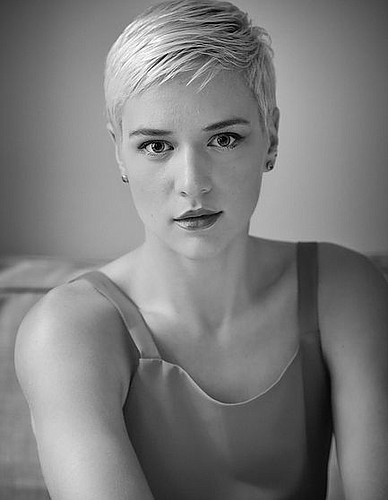- April 19, 2024
-
-
Loading

Loading

If sheer beauty of voice were the most important part of a vocal recital, mezzo soprano Lauren Eberwein would be one of the world’s great young performers. She has one of the finest instruments I’ve heard in a long time, and her long, legato lines are spectacularly beautiful. She also puts together a fine program that juxtaposes moods and sentiments with grace and intelligence. And she seems to be an excellent musician with a fine sense of pitch and clarity within her large vocal range.
In her program at Holley Hall, presented by the Artist Series Concerts of Sarasota this weekend, in cooperation with Curtis on Tour, the problem was that everything sounded the same. There was very little color to her voice, and she didn’t seem to know or convey what she was singing about. The entire second half of Eberwein’s program was devoted to great songs in English, presumably her native language. We could understand every word; her diction and enunciation were flawless. But there was no meaning to what she sang. It was cold.
Take Copland’s “Why do they shut me out of Heaven,” one of the most complex of the composer’s set of Emily Dickinson Songs. The words, “Don’t shut the door. Don’t shut the door,” should shatter your very soul, but from Eberwein’s mouth, they were simply beautiful, not explosive. The same thing happened with Bolcom’s “Black Max.” This is a sardonic but terrifying song — as frightening as its title sounds. But the mezzo sang it as if it were a love song. Only Ned Rorem’s “Alleluia” had some guts but still lacked the joy of that one word.
“Losing My Mind,” the searing, devastating song from Sondheim’s “Follies,” should rip apart both the singer and the listener, but again, it was merely beautiful. And for some reason, Eberwein and her even more bewildering pianist, Mikael Eliasen, changed the ending, omitted the modulation and turned it into a pleasant ballad.
Eliasen is the head of the vocal department at the Curtis Institute of Music, one of the greatest conservatories in the world. He was also music director of the San Francisco Opera Center and has a list of important musical credits to his name. Yet he played without any apparent comprehension of the words Eberwein was singing. His tempos were so slow it was amazing she could keep her beautiful line. Bernstein’s gorgeous “Simple Song,” and Kurt Weill’s biting “I’m a Stranger Here Myself,” lacked the intensity and understanding that makes them more than pretty tunes.
The program opened with Haydn’s Cantata, “Arianna a Naxos,” a long, mostly recitative-like work that begs for interpretation but received only pretty sounds from the singer and percussive loudness from the pianist. The first half ended with Falla’s Seven Popular Spanish Songs, which are fiery and flashy but, from Eberwein and Eliasen, sounded more like Haydn than Falla.
The final group on the program was what I call a quartet of tear-jerkers, ending with Rodgers’ “You’ll Never Walk Alone.” I don’t think I’ve ever sat through a performance of this without shedding at least a few tears, until this recital, that is.
It’s amazing. Lauren Eberwein has one of the most beautiful, well-trained voices I know. But there’s so much more to singing than producing pretty sounds. And in recitals, it’s the words that empower the music. Some really good coaching would do this mezzo a world of good.